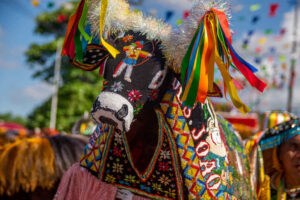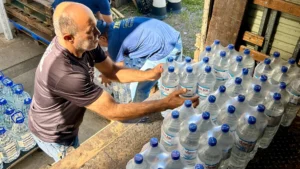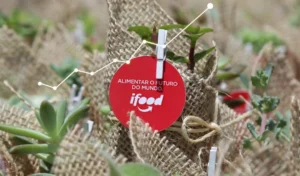On the first day of the year alone, iFood and Recicla Orla collected 9.6 tons from the sands of Copacabana
On the first day of 2022, a group of 60 people collected 9.6 tons of recyclable waste from Copacabana beach, in Rio de Janeiro (RJ). The action was carried out by iFood through the Recicla Orla project, created in partnership with the startup Polen and the dealership Orla Rio.
Since 2021, when the partnership began, 326 tons of recyclables have been removed from Rio's beaches. “With the support of iFood, Recicla Orla expanded its operation to the entire coastline of the south zone to change the way waste was treated on Rio’s beaches”, comments Renato Paquet, CEO of Polen.
“Our goal is to eliminate plastic pollution in delivery and promote actions that have a positive impact on the environment. In Rio, we are operating on five beaches: Leme, Arpoador, Copacabana, Ipanema and Leblon. We know that most of the waste left on beaches is recyclable. Starting the year with this unprecedented action only reinforces our commitment”, says André Borges, head of sustainability at iFood.
Want to participate? Soon, new dates will be announced, and the action should also take place on the beaches of Leme, Leblon and Ipanema, as well as Copacabana. The use of a mask is mandatory, and it is recommended to bring water to hydrate, wear light clothing and apply sunscreen.
Pollution in the seas
In Brazil, plastic is the predominant material in garbage mistakenly discarded on beaches, representing 70% of waste collected on sand strips. This is what one points out study by the NGO Oceana.
Most of the trash comes from food packaging like candy, ice cream and cookies, as well as straws, soda caps and bags, according to a Brazilian study published in the Marine Pollution Bulletin in 2020.
Worldwide, the volume of plastic in the ocean is estimated at between 75 and 199 million tons — and the disposal of plastic in aquatic ecosystems is expected to triple by 2040 if there are no significant actions to reverse this situation, points out the latest report from the United Nations Environment Program (UNEP).
The problem is that, when it reaches the ocean, plastic is ingested by species that are already threatened, such as the porpoise, the gray dolphin, the hawksbill turtle, the leatherback turtle, the olive turtle and the royal albatross. And by humans too, which can lead to hormonal changes, developmental disorders, reproductive abnormalities and cancer, according to the UN.
This scenario has led millions of people around the world to come together to collect trash from the beaches — Oceana alone has mobilized more than 16 million people to collect more than 156 thousand tons of trash from the sand and waters since its founding in 1986. .
To join forces with this movement, in July 2021, iFood became the first company in the delivery sector to sign a commitment to the #DeLivreDePlastico campaign, organized by UNEP and Oceana. The goal is to reduce the supply of single-use plastic items in the delivery service and ensure that, by 2025, orders will not be accompanied by napkins or plastic cutlery, plates, cups and straws.


